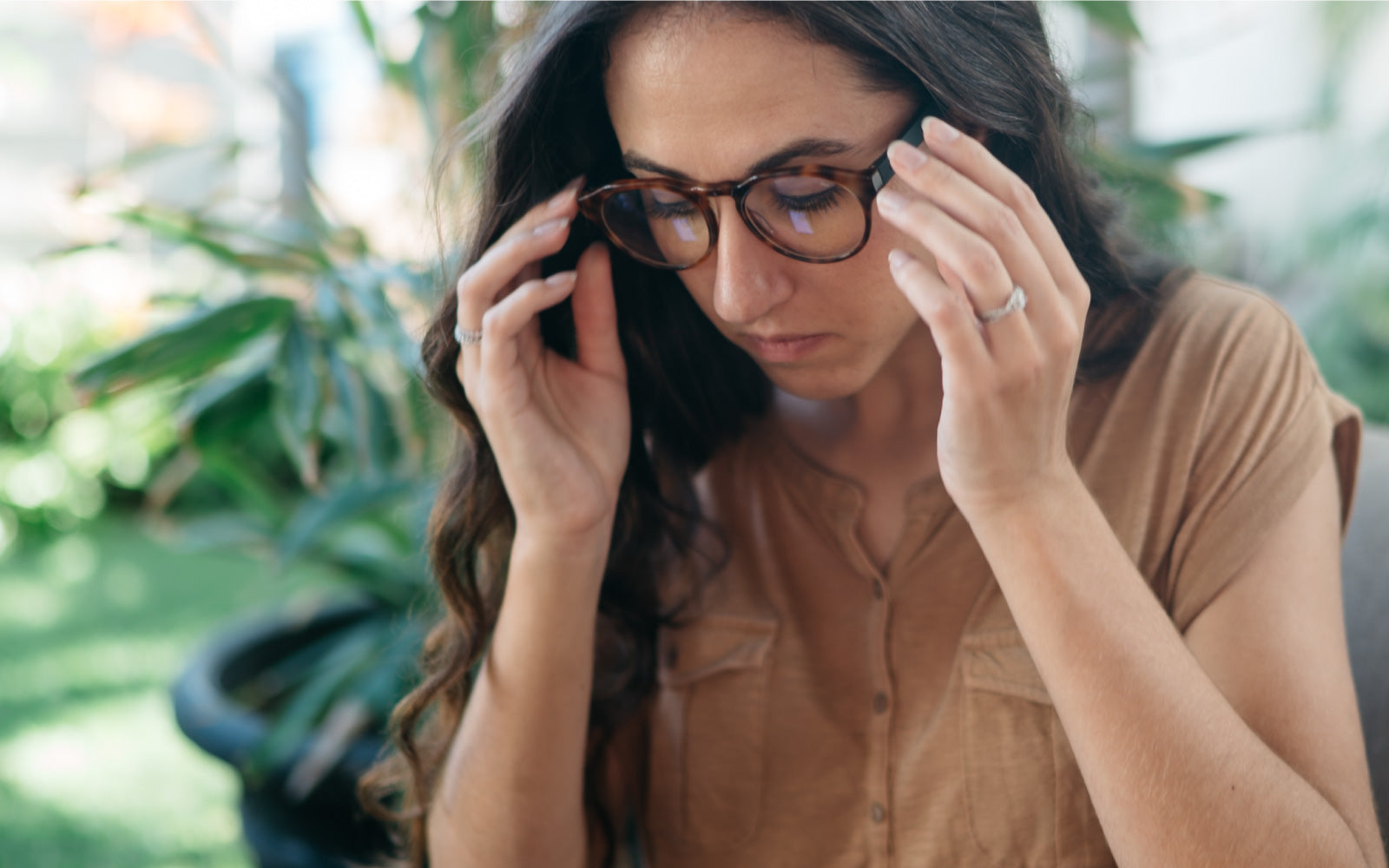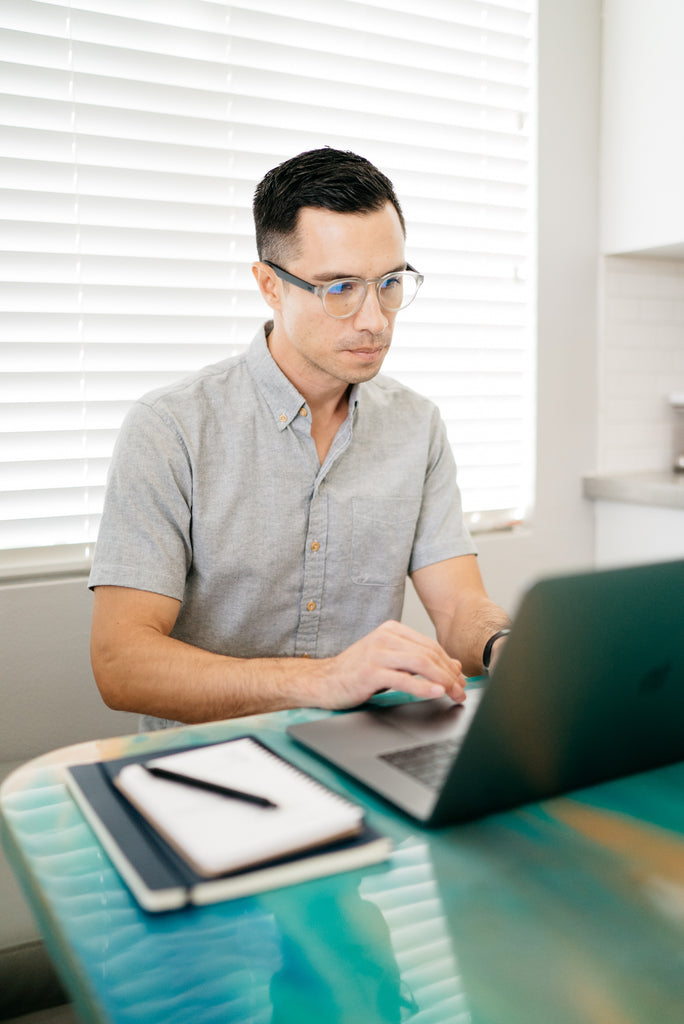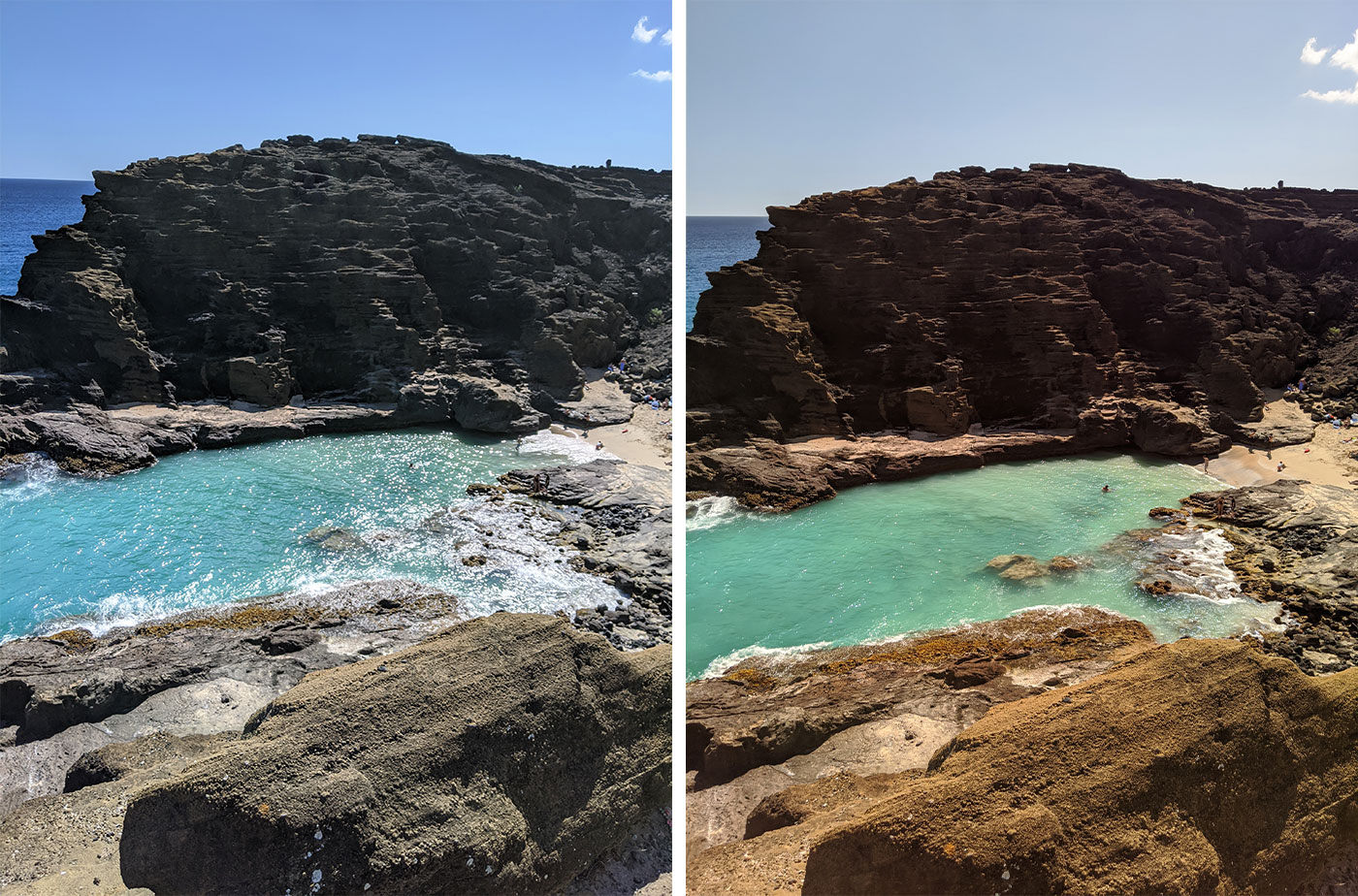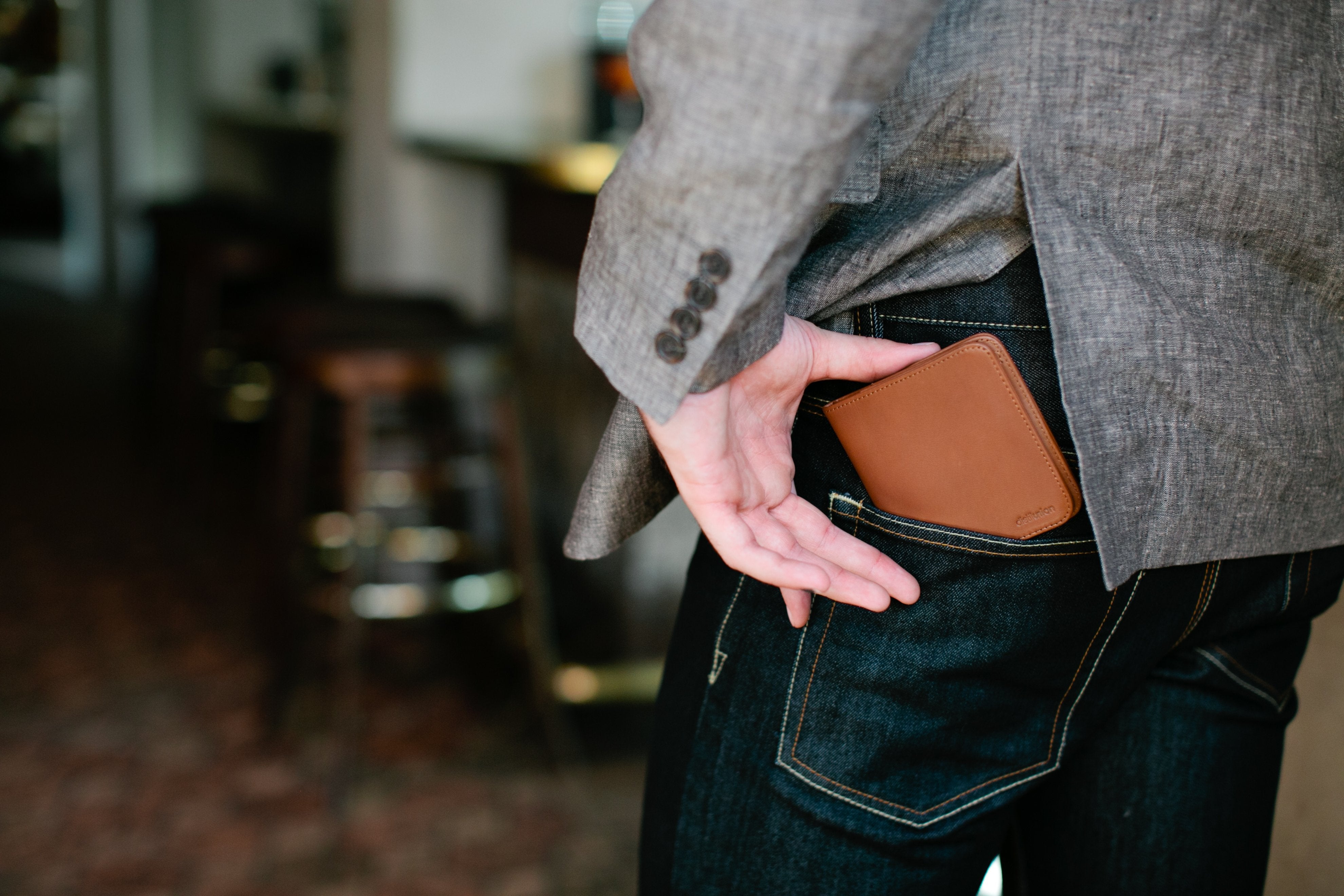
Should You Try Blue-Light Blocking Glasses?
For better or worse, screens have infiltrated just about every area of our daily lives. From our phones to computer screens and TVs, many of us are bathed in an eerie blue glow pretty much constantly.
Now, that's not to say screen usage is a bad thing. Screens help most of us do our jobs, improving productivity, staying in touch with our loved ones and even unwinding after a long day with our favorite show. In fact, we're not here to argue against screens at all—we just need to be smarter when it comes to our eyes.
You see, the screens we use emit blue light waves, which have a short, high-energy wavelength. By viewing screens, we invite that blue light into our eyes. And while many of the long-term effects of blue light are still being studied, the impact on the quality of sleep is already known:
"Blue wavelengths—which are beneficial during daylight hours because they boost attention, reaction times, and mood—seem to be the most disruptive at night. And the proliferation of electronics with screens, as well as energy-efficient lighting, is increasing our exposure to blue wavelengths, especially after sundown." —Harvard Health Publishing
It's all about timing: The beneficial blue wavelengths of light that give us a boost during the day can interfere with our natural circadian rhythm and suppress melatonin—the relaxation hormone that helps regulate sleep. It makes sense that spending too much time looking at screens, particularly in the evenings, could make falling asleep more difficult.
Many sleep experts recommend shutting down the screens at least an hour before you aim to fall asleep, but that neglects to take into account the effect the screens may be having all day long: beyond disrupted sleep, staring at screens all day can can cause headaches and leave your eyes feeling dry and strained.
Bottom line: Your eyes are important and deserve to be protected from these potential side effects. That's where blue-light blocking glasses come in. With specially treated lenses that block a portion of the blue light entering your eyes, blue-light glasses can prevent or counteract some of the negative effects of excessive screen use.

So, should you try blue-light blocking glasses?
Just like you would wear sunglasses to protect your eyes from the sun, wearing lenses with blue-light filtering also helps keep your eyes safe. If you're someone who spends most of your day working in front of a computer, you might be surprised to find the difference wearing blue-light blocking glasses can make.
No matter what, we don't expect screens to become less a part of our lives any time soon. Might as well protect our eyes, right? That's why we created MagLock ScreenSavers with EasyScreen™ lenses that cut glare and offer a significant 55% reduction in blue-light exposure. The premium CR-39 lenses are lighter than glass, and offer 100% UVA and UVB protection.
Our flex-to-fit MagLock arms don't pinch your head or cause fatigue like most frames, while the hidden magnets let you mount them anywhere magnetic so they stay fingerprint-free and ready for the next FaceTime. And of course, the flattering flat-top frames in Italian acetate look smart because they are smart—the perfect complement to your smartphone or any screen. 



